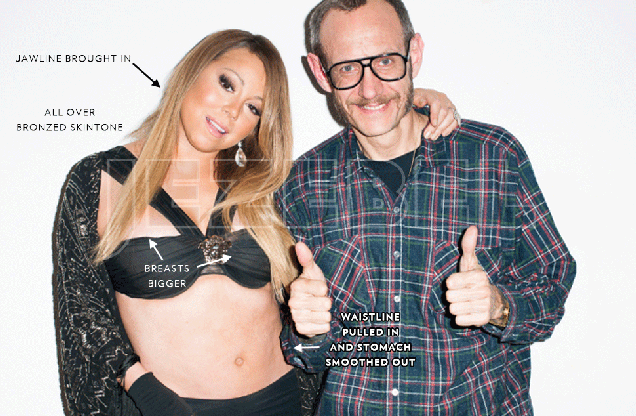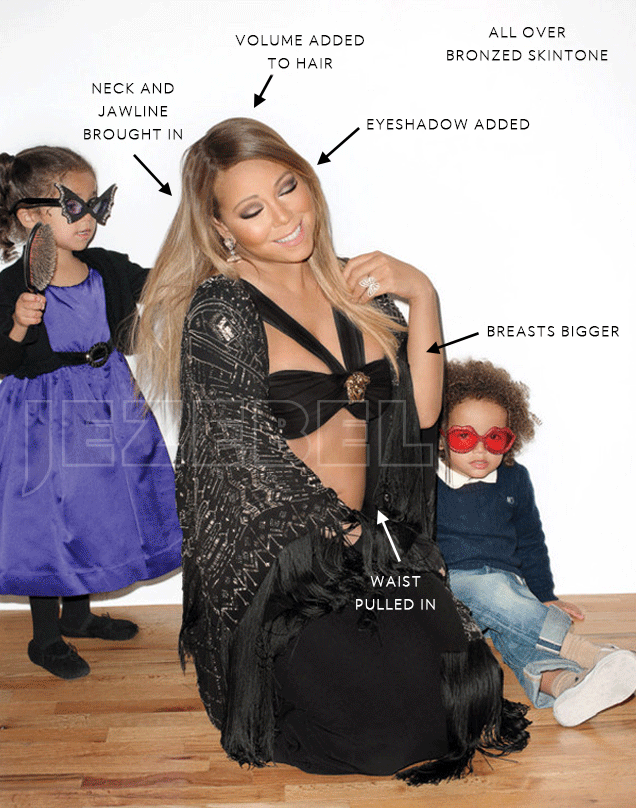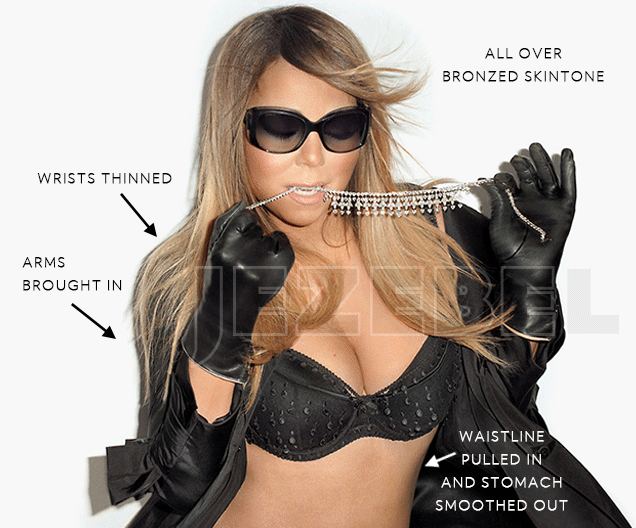![Blood in the Streets: A Conversation About Gun Violence in Chicago]()
Earlier this week, writing for The Daily Beast, Roland Martin proposed a solution to the surging violence on Chicago's South and West Sides: Send the National Guard to Chicago.
Martin's essay, narrow-minded and altogether ill-considered, was sparked by the recent killings that took place over the July 4th weekend—84 people were shot, and 14 killed. The city's poor black neighborhoods have become a recurring national talking point over the course of the last few years: Violence and death, it seems, are the only constants in Chiraq. Concerned that Martin's solution for military occupation ultimately presents more harm than benefit to residents, I reached out to Ernest Wilkins, a reporter for RedEye Chicago, Josie Duffy, a writer and policy advocate at The Center for Popular Democracy, Jamilah Lemieux, senior editor at Ebony.com, and Kiese Laymon, author and contributing editor at Gawker, for answers. Our conversation appears below.
Josie Duffy: I have a lot of thoughts on this, but I'll start the conversation off by just saying one thing. If 84 people are shot and 16 are killed in one city in one weekend, I think it's clear the government has failed somewhere. So I think Martin is right insofar as the government has a responsibility to respond and attempt to rectify the problems plaguing Chicago.
But this sort of violence doesn't appear out of thin air—it's a response to a long history of systemic deprivation. That's why Martin's solution is deeply misguided, both on principle and practice. And while he suffers from a number of problems in this article – a memory deficiency, an overabundance of self-righteous moralism—perhaps the most pronounced is his laziness problem. He has a creativity deficiency.
This is his idea? More law enforcement? His suggestion is extreme, sure, but it's neither innovative nor intelligent.We're ahead of you, Roland. We've tried that. Law enforcement—from the police to the prosecutors to the prisons—have been working overtime for decades. Spoiler alert: It hasn't worked. In fact, it's made things worse in a lot of ways.
Somewhere along the way many people forgot that victims and residents of places like Chicago and St. Louis and Brownsville are perfectly capable of speaking for themselves, so I don't want to pretend to know what's best for those residents. What I do know, however, is that violence across America and especially in Chicago is perpetuated against the poor and the black and the brown. It's not a coincidence that we're talking about the same demographics that have been not only ignored, but explicitly and intentionally prevented from access to education, economic mobility, and safety. This idea of the powerful causing the problem and then swooping in to benevolently gift us the "solution" is offensive. You can't make up for systemic deprivation through law enforcement. Law enforcement doesn't have the nuance, it doesn't have the tools, and it doesn't actually work. It's reactive and not preventative. Stop trying to find a shortcut where there is no shortcut.
Do any of you think there a way, as Roland suggests, to address violence without addressing poverty? Also, has Roland heard anything about Iraq and Afghanistan lately?
Ernest Wilkins: Josie, you're so on point about the residents of Chicago being able to speak for themselves. Before we consider rolling troops down Stony Island or through the Low End, maybe we should address the lack of communication taking place between the people in these neighborhoods and the people in power in Chicago. Nothing changes without that. When I say "ignored" understand that, in a lot of cases, that's literally happening. There have been countless meetings, initiatives, caucuses, fish frys, etc. with members of the communities suffering from this violence and the people in power. You would think some insight would have been gained by now. Instead, the conversation usually goes like this:
"What is the problem here? Why is everyone killing everyone?"
"We're poor. We need money and jobs in this community."
"Ok. What's the solution to this violence though?"
"We just told you. Money and jobs in the community. A lot of this goes away with opportunities to do better in life that we currently aren't being afforded due to ignorance about our plight. Stop lumping everyone into a faceless mass of "gangbangers" and listen to us as human beings."
"Maybe you're not understanding me here. WHAT. IS. THE. SOLUTION. TO. THE. PROBLEM???"
"...We give up."
Even worse, when people from these communities define the exact issues that lead to this violence, their opinions are picked apart and not taken seriously, with the response usually being some variation of tired-ass narratives like, "You need to fix your community by pulling yourselves up by your bootstraps, not blaming the white man" or "Something something Al Sharpton, Jesse Jackson" or the "solution" Roland Martin presented in that piece.
The fact is, the people who die in our streets aren't looked at as real humans. We've obsessed over the numbers and crunched the stats so much that the baseline reaction now after hearing that TRIPLE the amount of the lives lost in the Boston Marathon bombing were killed over the weekend some four miles from your house is that of numbness. You aren't sad. You aren't angry. You just post an incredulous "This has got to stop!" message to your Facebook feed, and keep it moving.
Jamilah Lemieux: Josie and Ernest, I think you've both summed up a great deal of my own frustration with the media narrative that talking heads like Roland have driven and also, the apathy that comes with being detached from the actual violence. I read this week that 85 percent of the city's violent crimes affect 5 percent of the population. That means that your average Chicagoan doesn't know anyone who has been harmed or killed, nor do they live in an area that has been affected by the violence—which is primarily concentrated in two of the cities 60 zip codes.
Fourteen homicides in a weekend is a tragedy no matter what the circumstances, but I believe that so much of the reporting on these shootings has to do with 1) the 24-hour news cycle that didn't exist when the murder rate was significantly higher in the 90s and 2) the president's connection to the city. There is something so wrong about Roland implying that the entire South and West Sides are on fire. I am tired of trying to explain the culture and the geography of my hometown to people who have never set a foot outside of O'Hare Airport because they are somehow experts on all things black and terrible. And as someone who left here—I just happen to be in town this week—12 years ago for college and never moved back and never intends to do so, I recognize my own limitations in identifying some of the shifting dynamics that have brought us from being known as "Chi-Town" to "Chiraq." However, when someone says something as reckless as 'send in the National Guard' to police American citizens who have never had the honor of being treated as such, it makes it plain that folks aren't even trying to understand what is at play here.
My parents can tell you stories of black Chicagoans being terrorized by the National Guard during the 1968 Democratic National Convention and the riots that ensued under the regime of the late and notorious Mayor Richard Daley (the first one). That any black man over the age of 40 would see this as a viable solution makes me question his knowledge of history and also, just what he thinks the National Guard does. They are trained to shoot and kill, to mobilize for war. How does that serve the people of this city? Who does that help?
I do believe that government intervention—on a federal and local level—is appropriate, but coming in with guns to fight guns only increases the likelihood that innocent black people will find themselves incarcerated, maimed, or worse. What a solution looks like, I don't know, but as Ernest said, we should be looking to the people who are HERE and fighting that fight daily, as opposed to a tired police chief from Newark and the Army, to decide what that should be. People are poor, jobs are scare, the "you aren't welcome here anymore" gentrification is making it difficult for people to commute to the jobs they do have, to afford the rent and groceries that may have already been a challenge. But some cat from the South thinks that what we need are tanks and guns? That's infuriating.
Kiese Laymon: Thank y'all for breaking all of this down with plenty care, introspection and imagination. I'm not sure I have much to add other than more questions. Half of my family moved to Chicago, Indiana, and Racine a few decades ago to escape Mississippi.
I remember my Aunt Daisy—who lost a daughter to violence, and lost her son to years in prison after he was found guilty of violence—saying that there are more folks on the ground fighting to keep kids alive than anywhere else she ever lived. But those folks, Daisy claimed, are the least well-paid folks she knew.
I'm wondering what happens if we really invest in the work of folks in Chicago really fighting to ward off what white supremacy and unexplored sexist culture has produced. And if we can't allow or expect adequate compensation for those folks, should we find creative ways as black folks to fairly compensate and fairly train the folks in our community who want to do this work? What would a communal creative financial commitment to fighting the consequences of white supremacy look like?
And what role should black folk who don't live in those communities anymore play?
My other question is a tougher one. I come from a place very similar to Chicago. Jackson's murder rate is routinely higher proportionately than Chicago's. Like a lot of folks who grew up there in the 80s and 90s, I feel lucky to be alive. I know part of that is because of small classes, committed freedom fighters who let me know over and over that killing and fighting each other was playing into the hands of the worst of white folks, and a grandma I never wanted to let down. I'm not in Jackson anymore. And while I write words that I know some young folk in Jackson read, do we have the responsibility to go back to the communities we come from and commit to learning and teaching and fighting for the future of our people?
I work with young middle schoolers and high school kids in Poughkeepsie, but that's not home. Should we go home and commit to loving our people, especially when folks are talking bout unlovingly sending in men with guns to discipline them if they don't act right. Should we go home and fight?
Jason Parham: The answers we're looking for won't be easy. And while I don't agree that the National Guard is necessary to help mitigate the violence sweeping across the South Side and West Side of Chicago, I do agree that an increased level of authority—via residents who wield some sort of influence, community organizers, etc—might help subdue a portion of the terror taking place. But even then, we are not really unearthing the root of the problem.
As Ernest pointed out, there are a lot of variables at play here, the most horrific realization being: black life doesn't account for much in America. And the statistics Jamilah offered reinforce this. People who visit Chicago via a CNN news broadcast or a clip uploaded to YouTube see us, but they don't really see us. This, of course, is nothing new. But it is something that I think about often, and I wonder how a similar situation would play out in an area populated by, say, middle class whites. I accept this reality, though—a reality, I should say, that we are forcibly trying to alter, stubborn as it might be—and understand that there are cultural structures in place that allow for the continued devaluation of black and brown life (doubly if you're poor, triply if you're black, poor and a woman).
I don't have the one true solution to any of this. I'm a black man and I find value in our existence, in our love and support and uplift of each other. But I know that it begins with us. I take responsibility for my brothers and sisters. I acknowledge that what these young men are doing is wrong and hurtful, but I also understand that it comes from a place of anger and self-doubt and not wanting to be unloved. I am reminded of Kai M. Green's words: "What do we do with the scars, those of us who did not die, but still aren't free?" I don't want anybody to misinterpret what I'm saying: I am not making excuses for the violence, killing is a cowardly and terrible evil, but many of these young men are reckoning with traumas, tangible and intangible, they don't fully comprehend. A black man is born with a target on his back. That is our starting point. That some of us have made it this far is a miracle.
So to answer your question, Kiese: should we go home and fight? If we have the means to do so, absolutely. It begins with us; it begins with better and more sustainable community building. Why is it that these young men feel like joining a gang is their only option for acceptance and survival? Why is it that these kids are merely trying to "make it out" instead of trying to "live"? Obviously these issues are rooted to larger systemic problems within the context of America—the lingering residue of Jim Crow-era segregation, disinvestment in areas populated by poor black and Latino populations, inadequate schools in "urban" neighborhoods, the fracturing of the black family, etc etc—but not unsolvable. As Jamiliah noted, I don't want the readers to think we are speaking in absolutes here, this isn't the entire reality of communities at war—there are individuals doing great and important things on Chicago's South Side, and in neighborhoods like Brownsville and Compton—but the violence is a reminder that there is ever more work to be done.
Jamilah Lemieux: Do we have the responsibility to go back to the communities we come from and commit to learning and teaching and fighting for the future of our people? I struggle with this question often. On some level, I feel some guilt for leaving the place that nurtured my development and taking whatever talents or gifts I have to become part of this large New York machine. One of millions of transplants who, depending who you ask, either drain that city dry, or make it richer than its own natives could on their own. But on the flip, what does coming home look like? How do I make things better here? And do the unique challenges facing my hometown mean that I'm not entitled to the pursuit of happiness that led me to leave in the first place? Because I decided to leave long before "Chiraq" was something struggle rappers used to lend credence to careers that would have been felled by their lack of skills some 15, 20 years ago.
I'd like to believe that on some level, my work as a writer and editor who focuses on issues of race, gender. and sexuality is a contribution to my community—the black community, from Chicago, to Brooklyn and beyond. If I can figure out ways to help these South Side girls feel better about their sexual agency, or to address the flaws in the media narrative around Chicago from the place I've adopted as my home, is my absence still a betrayal?
In April, activist Leonore Draper was killed in a drive-by outside her home after leaving an anti-violence fundraiser. I honor her sacrifice, but I am not willing to give my life to Chicago. And while I understand the city well enough to know that the violence is largely contained to certain areas, and that Americans must be prepared to be shot at any time (see: Columbine, Aurora, Sandy Hook), I do feel that relocating back here comes with the increased possibility of being in the wrong place at the wrong time—especially if I were to return specifically to "help make things better." I have a child, she needs me and she needs to be safe. My ex is also from here, and when she is visiting the city without me, I just pray that the desire to go see Cousin or Auntie So-and-So in a rougher part of town takes a backseat to keeping our child away from harm. I worry over her being in shopping malls and on subway trains or anywhere that people can be found. I don't have what it takes to deal with her being down the street from where Chief Keef stays.
I try and do my best to be an ambassador for my city, to tell the Roland Martins of the world, "Look, you've got this wrong!" and to remind people that Chicago is not a city of savages, but one that has been criminally underdeveloped by structural racism and inequality. But I'm not willing to return, at least not now.
Ernest Wilkins: My family is from the Robert Taylor Homes. The environment that molded thousands of black lives—including my father's—literally doesn't exist anymore. The housing project was finally demolished in 2007. I've never been there and I never will. Still, there's still a sense of responsibility within me to do right by my people. I love Chicago. The city made me who I am. One of the main reasons I moved back home after college and living in Atlanta for a few years was to try and contribute to making the city better. As black people, I think the whole point is to recognize that situations like this affect all of us, no matter how much we might want to distance ourselves or feel like it isn't our responsibility. If you live in Brooklyn and have access to a few million, you can do more than I can on the ground here in the immediate sense. However, I can go talk to these kids and donate my time. Everyone can do something.
I think there's a sense of hopelessness and a feeling that the job is too big. The society that can save Chicago is the same one that's out here giving a man 20k to fund a goddamn potato salad on Kickstarter. We have the tools. These neighborhoods need awareness to the real issues, not rhetoric, posturing, and lack of empathy. No matter what though, the solution ain't troops, my guy.
[Image of Chicago residents who have died by gunfire posted at Saint Sabina Church, via Getty]


























